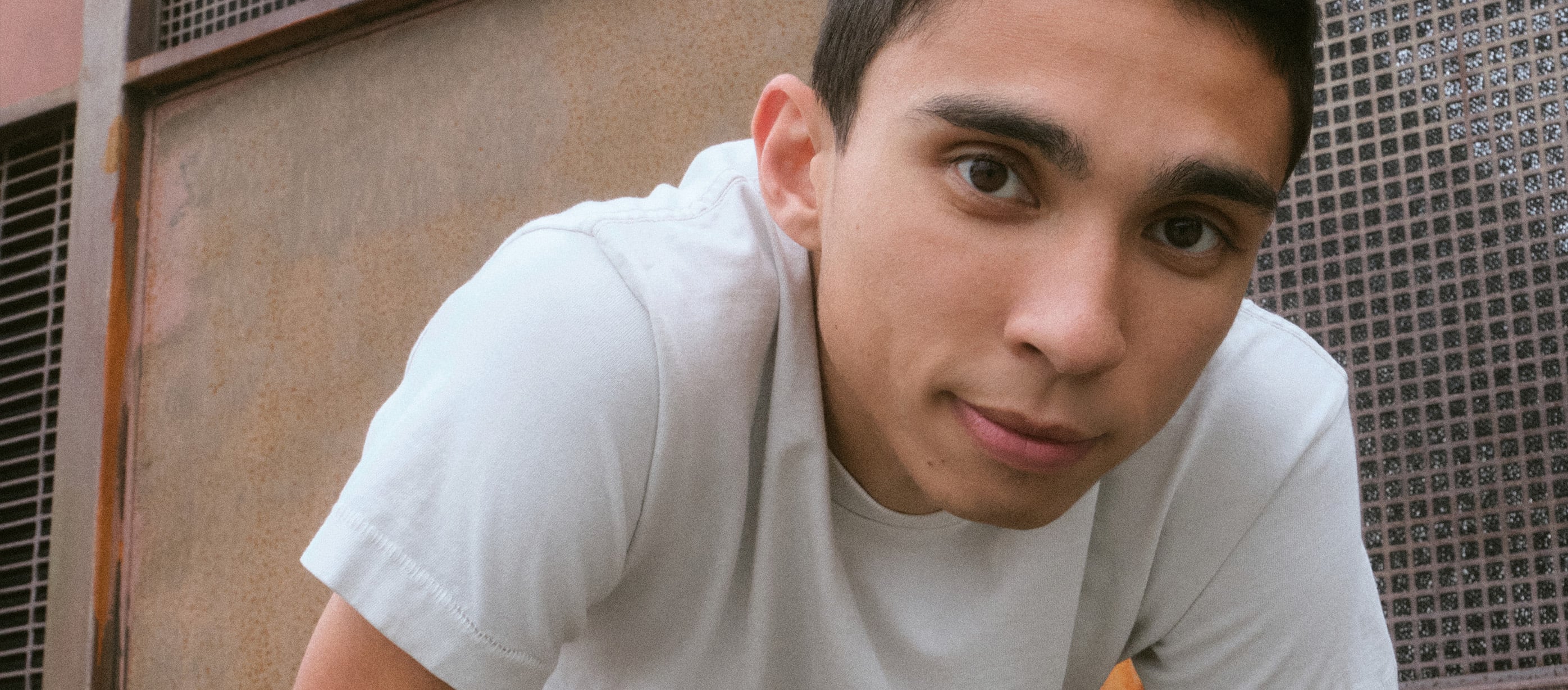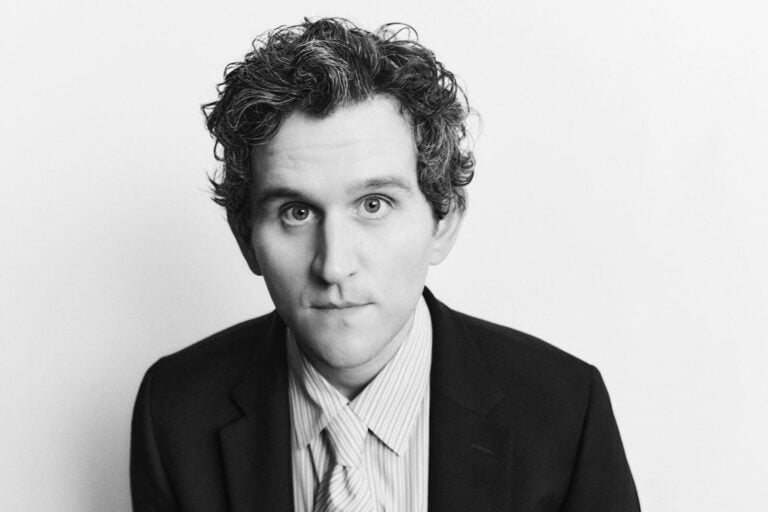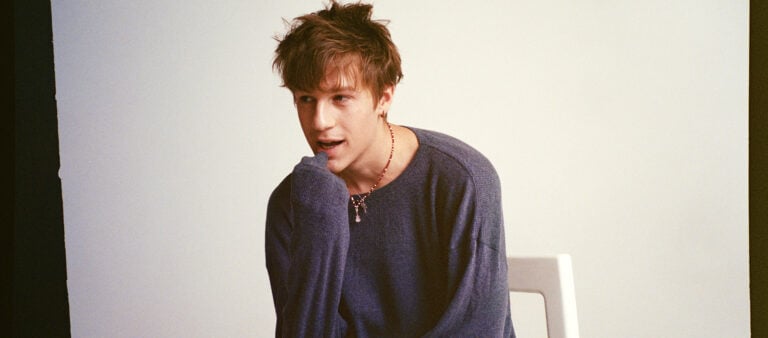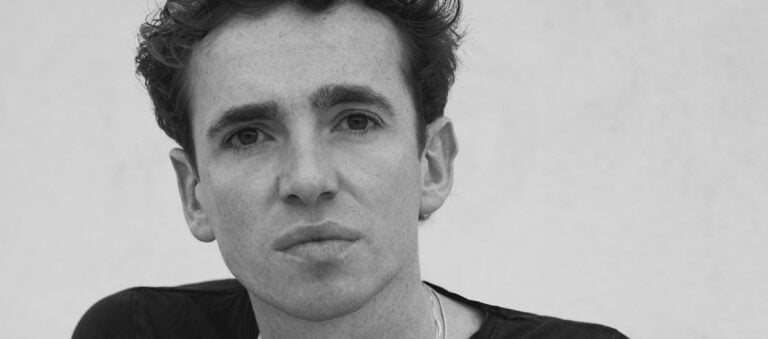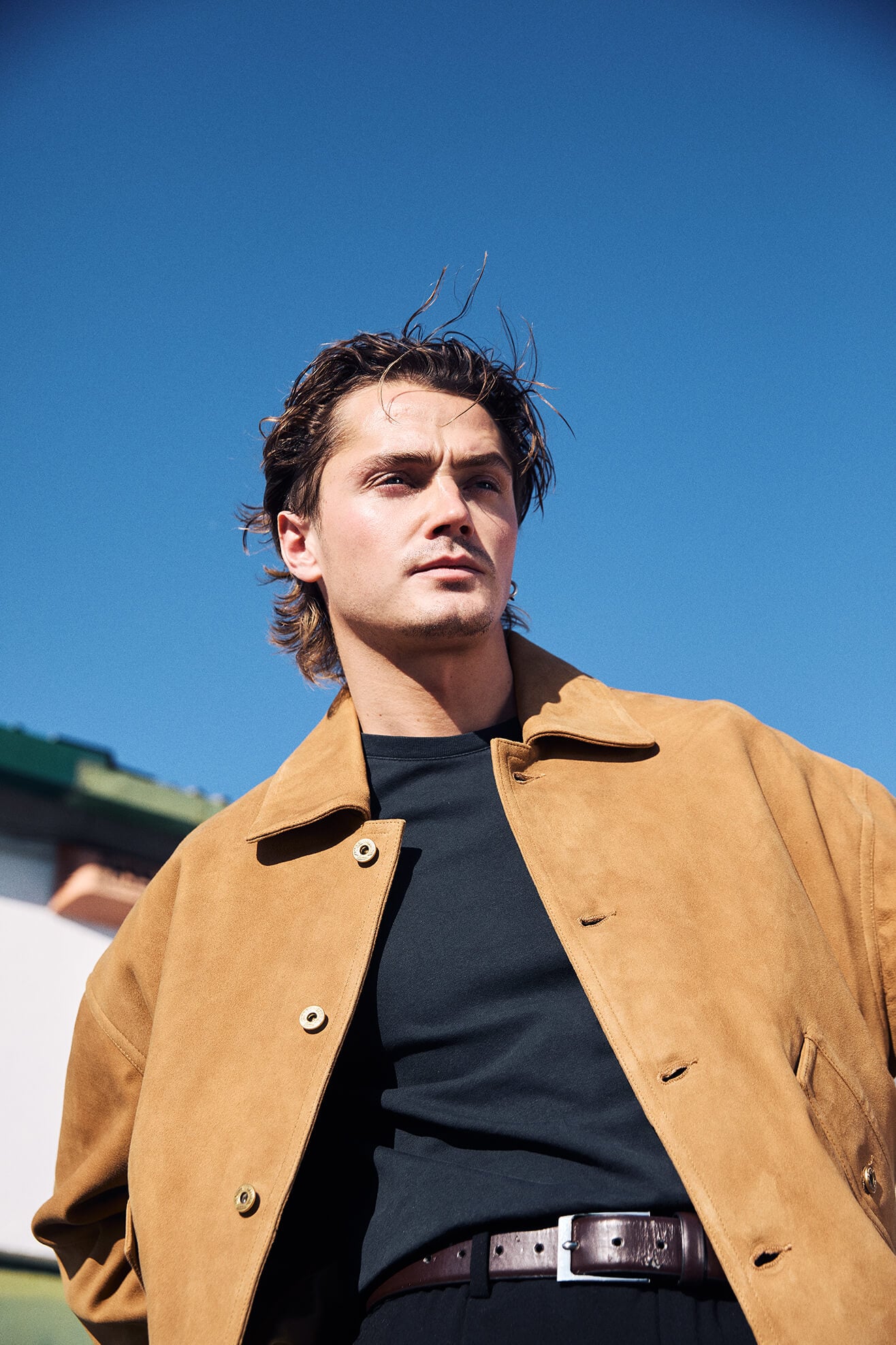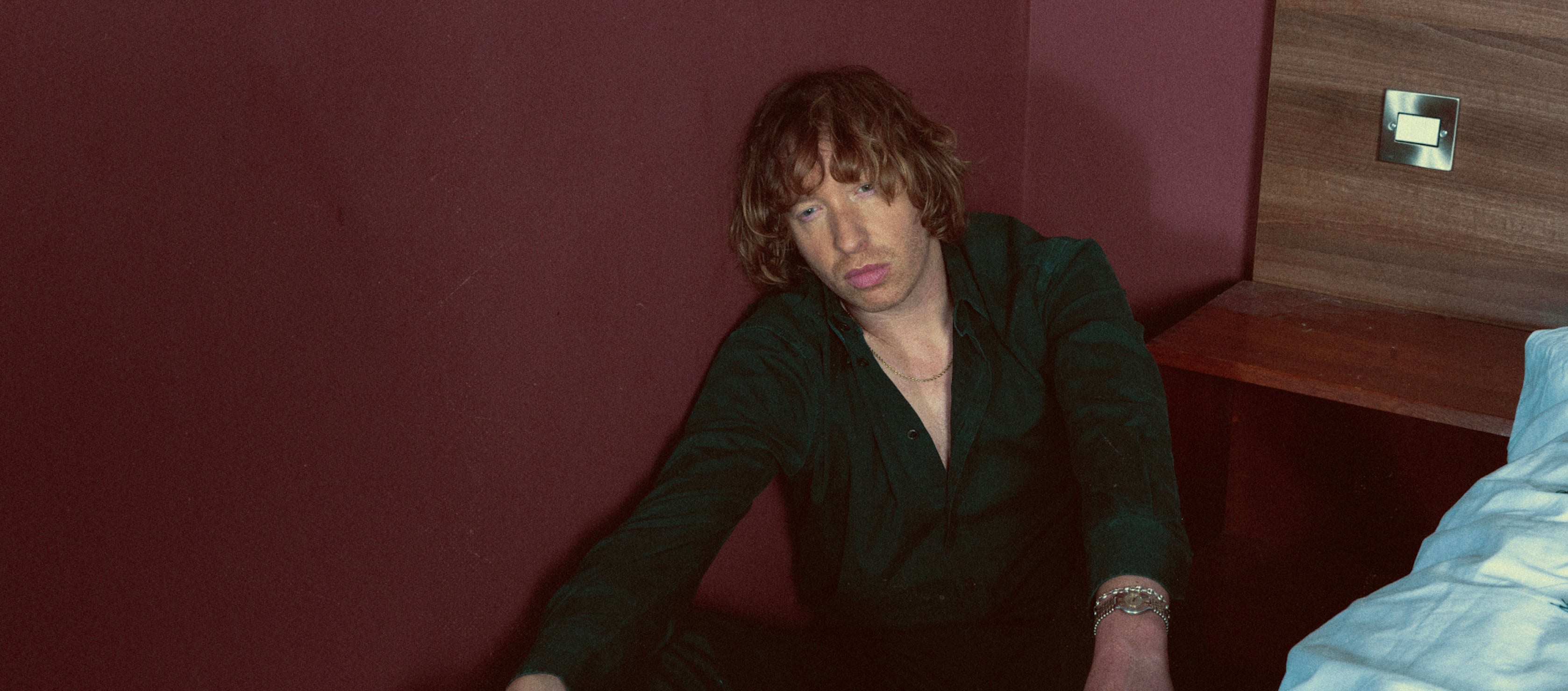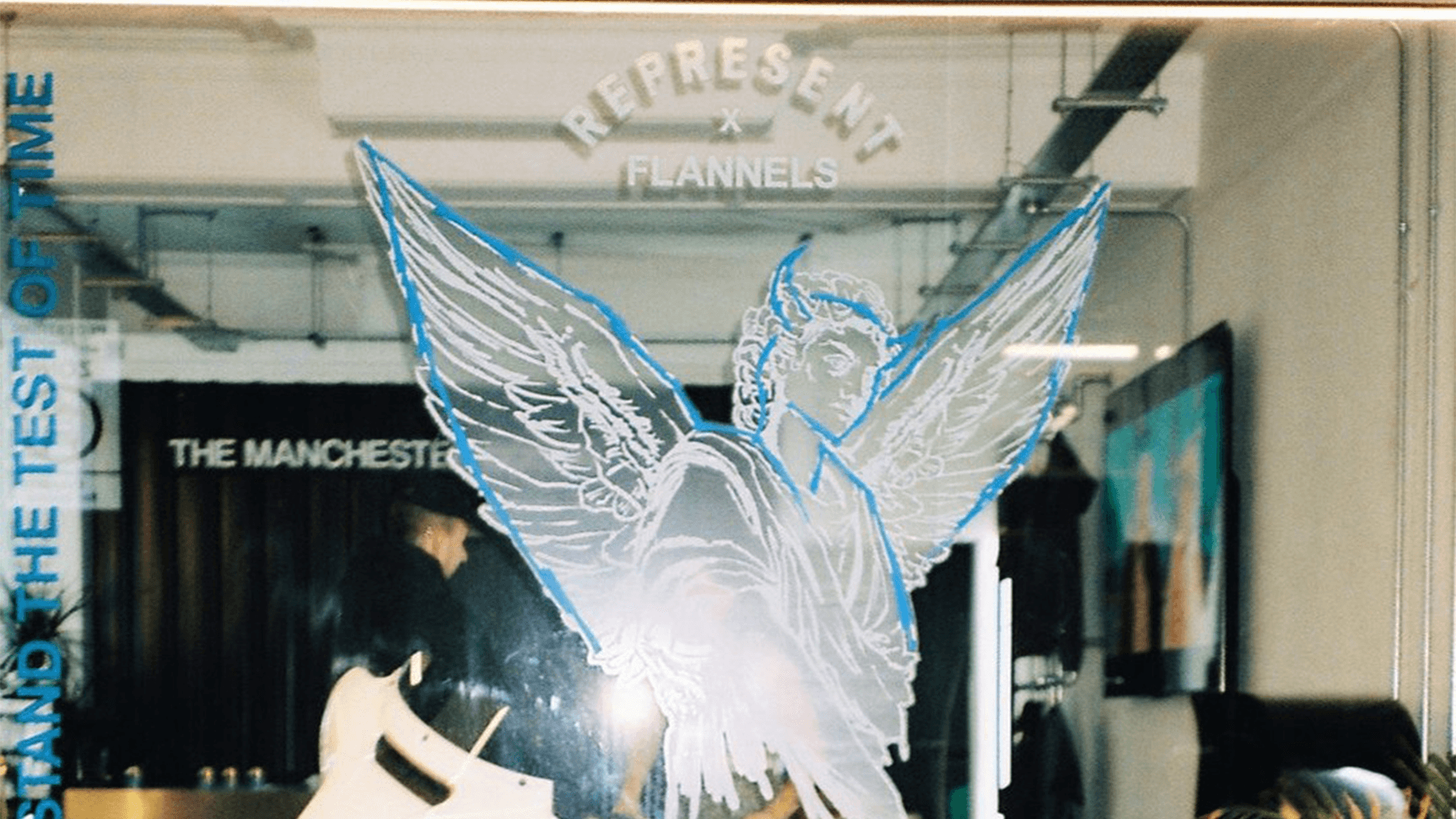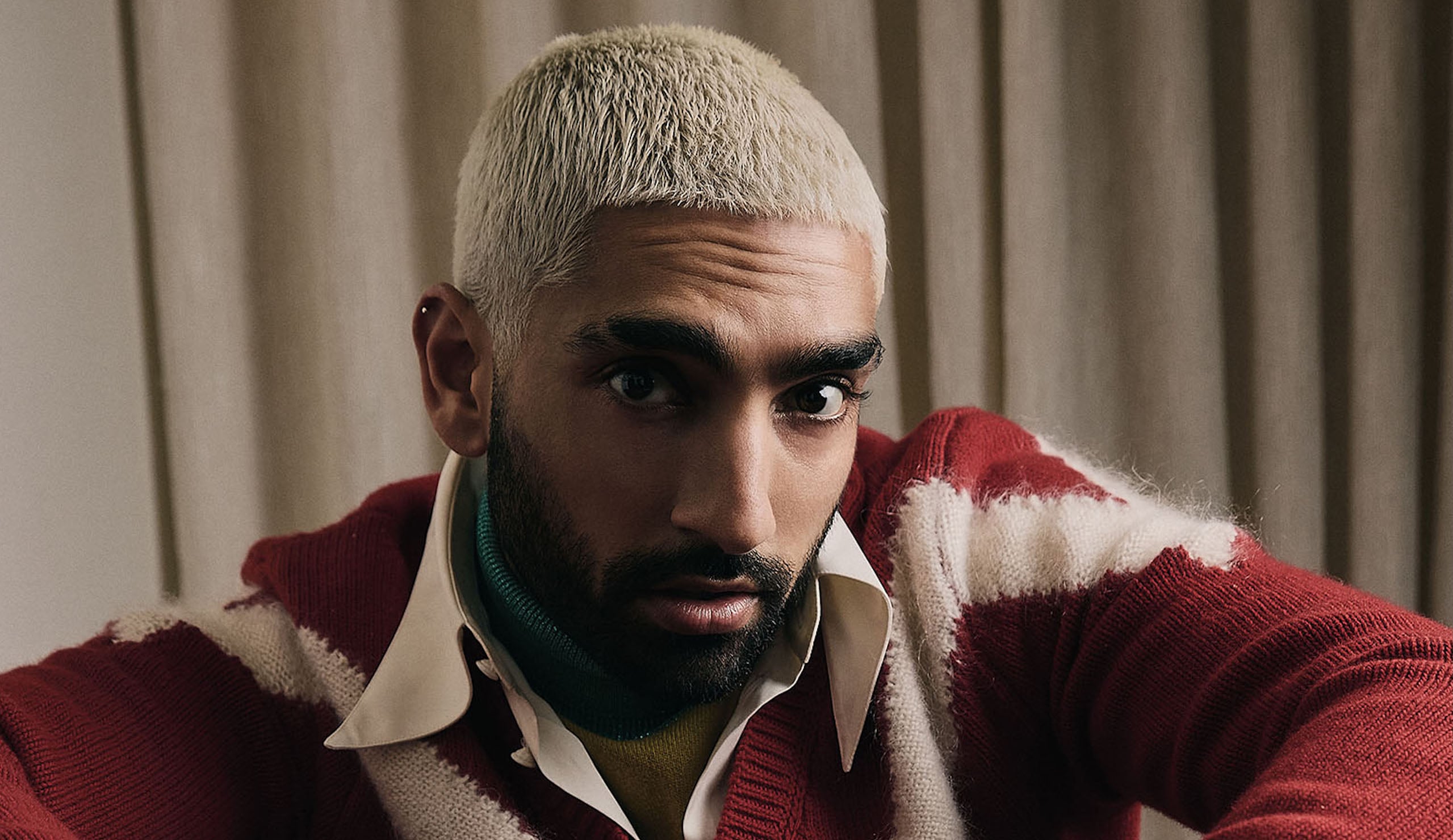The rising actor talks sharing the screen with Oscar winners in his breakout role in Ari Aster’s Eddington.
As breakthrough roles go, you could do a lot worse than starring in genre-bending a24 sweetheart Ari Aster’s latest opus. Nestled within a star-studded cast that boasts a plethora of screen heavyweights – including Joaquin Phoenix, Emma Stone and Pedro Pascal – newcomer Matt Gomez Hidaka presents a level of performance that far outweighs his tender age and fledging experience.
Eddington is a film derived from the turmoil of our current world. The fourth full-length feature from acclaimed screenwriter and director Aster, following Hereditary, Midsommar and Beau Is Afraid, the Western noir catapults our anxiety back into the uncertainty and division of the COVID-19 pandemic era. Challenging and thematically dense, it’s a twisting film that is built on contemporary fears, political partitioning, and pitch-black humour.
With tight, emotionally complex chemistry with on-screen father Pedro Pascal, Hidaka moulds his performance into the angst-laden tone of the film. With prior credits including an array of well-received shorts and a recurring role in dystopian sci-fi drama Silo, there’s plenty to suggest that the young actor has a bountiful career ahead.
Speaking to Man About Town, Hidaka delves into the genesis of his passion for acting, explains his admiration for the likes of Viola Davis and Ben Whishaw, and delves into the Eddington process.
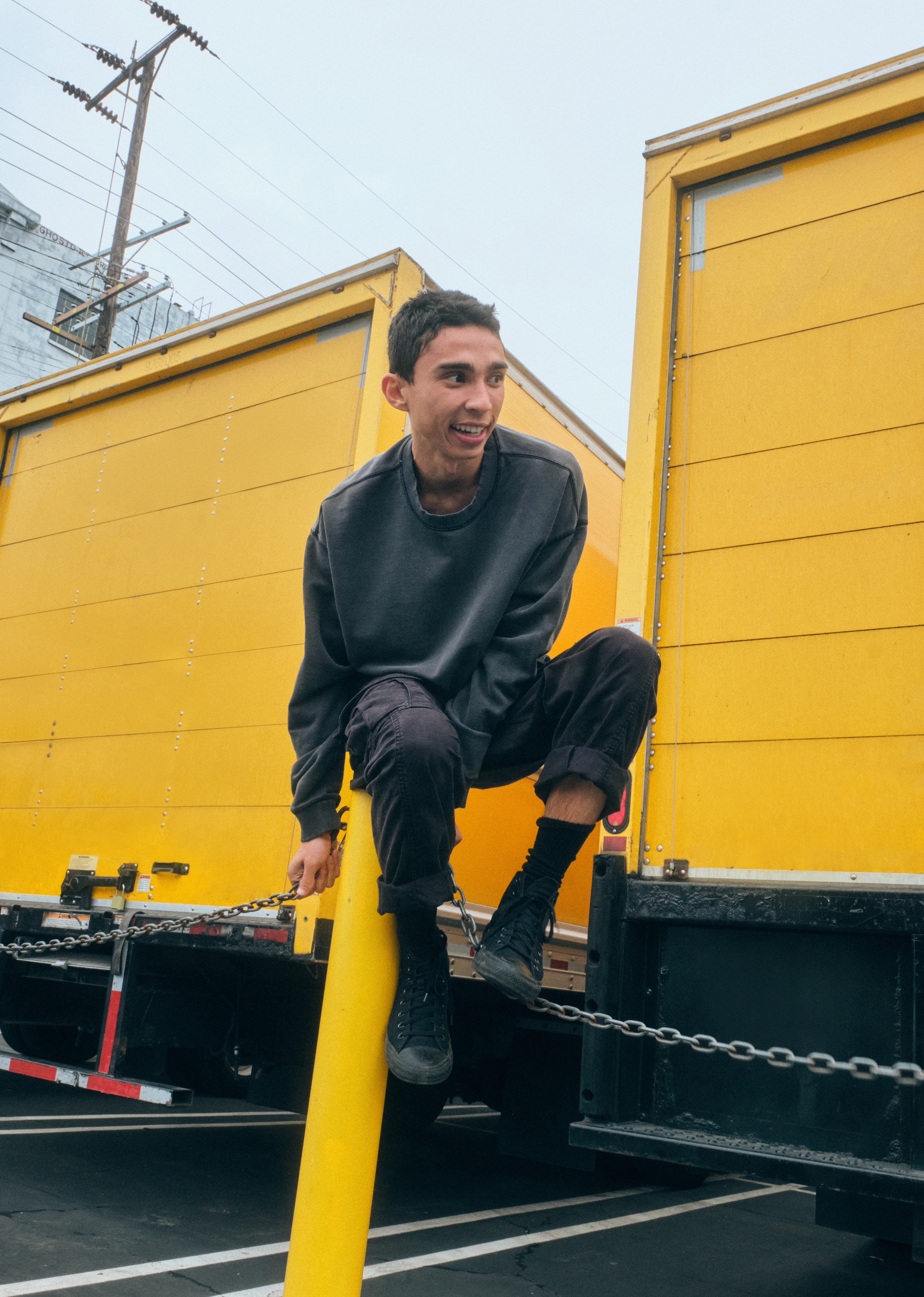
Photographer credit: Kristen Jan Wong
Hi Matt! How are you? What have you been up to in 2025?
I’ve been good, grateful, refreshingly busy. All the things. It’s been a big year of change. Everything I’ve worked on over the past couple of years is finally coming out, which is exciting and a little exposing in the best way. I’m also in the middle of moving right now, the most literal shift of them all. So I’m just trying to stay present and not let all the unpacked boxes win.
Talk us through your acting origins? Was it always a craft that interested you?
I was a weird kid, always trapped in my imagination. Teachers hated it. When I found acting, it was the first thing that made me feel like I wasn’t completely insane. But growing up in Rogers Park, Chicago, it was hard to see myself in film. Realistically, I imagined a career hopping around small black box theaters. That honestly still sounds romantic to me. But getting to do screen work has been a welcome surprise.
Who are your role models, in and out of the industry?
Viola Davis. Hands down. She’s been my favorite actor since day one. So raw and eloquent. Every time she speaks… you feel it. I also really admire Ben Whishaw. Everything he does is so nuanced and alive. He’s a master.
I feel a little weird saying this one because I know him, but Ari Aster. Man, I look up to him a lot. He’s an artist with guts and a real vision. And at the same time, he’s completely down to earth. That combo’s rare.
Now, outside the industry? My older sister Emiko. She’s real as hell. Everyone needs an Emiko.
Previously, you’ve appeared in the TV show Silo. What did you learn from those early on-screen experiences?
Silo was huge for me. It came right out of acting conservatory and was my first time on a set that massive. I remember walking onto that north London soundstage and thinking, “just play it cool.” I didn’t. It was intimidating, the sheer scale of it all. But I learned how to hold my own. That confidence was an invaluable gift. I figured if I could stay grounded while pretending to live in a 144-floor subterranean bunker, working alongside actors I’d watched for years, I could survive whatever came next.
Now Eddington feels like a big breakthrough for you. Congratulations! How did you first become involved with the film?
Thanks! It actually started in a pretty standard way. Just an audition. But it was funny, because Ari had always been one of the directors I wouldn’t shut up about to my manager. Sorry, Michael! Then suddenly the tape came in. I did it, did the Zoom, got on a plane, and landed in the middle of New Mexico. It was kind of surreal. I’d been talking about wanting to work with him for so long, and then it all came together in this very unglamorous, very abrupt way.
How was working with Ari Aster? What does he expect from his actors? Was there anything he did that surprised you?
Working with Ari was a dream. He’s incredibly precise and yet somehow fluid. Obviously, he expects you to show up fully prepared, but once you’re in it, he really gives you the space to explore. And his notes are fantastic. Always sharp, clear, and exciting. He has the mind of an actor, I swear. But the thing that truly caught me off guard was how funny he is. I did not expect the man who made Hereditary and Midsommar to be so chill. Clearly, he’s got a very effective outlet.
You appear alongside an array of revered names — from Joaquin Phoenix to Austin Butler, Pedro Pascal to Emma Stone. How was the process of performing with such stars? What did you learn from them?
I’m always fascinated by how other actors approach their work. Personally, I don’t believe there’s one right way to do it. If it’s believable and truthful, it’s valid. Pedro and Joaquin couldn’t be more different, but what everyone on that set had in common was play. We were all trying new things, tossing out ideas, taking big swings. I felt safe knowing nobody was trying to be perfect, just honest.
The film is set during the pandemic — how did you delve back into the mind state of that difficult time? Was it traumatic in some sense?
Going back to that headspace was definitely uncomfortable. It feels easy to downplay it now, but that period reshaped me. We all made real sacrifices. I still carry a strange kind of residual loneliness from that time. When it came to playing Eric, the challenge wasn’t recreating some broad “lockdown energy.” It was getting to the core of where he was in his life. That’s where it got personal. And playable.
Talk us through your character, Eric Garcia?
I love Eric. Everyone tells me he’s a dick. Everyone. But I think he’s completely misunderstood. He’s a hurt kid trying to act like he’s not. Sure, his coping mechanisms aren’t the healthiest, but underneath it all, he’s just trying to prove he’s worthy of love. He lives a pretty public life, for a small town, thanks to his mayor dad who broadcasts their family issues. So he’s on this quiet, messy quest to convince the world, and himself, that he’s enough. It’s heartbreaking when you think about it. I’ve been there, in situations where your humiliation is on display. I think a lot of people can relate to that. I hope audiences can view him through that lens. For me, it’s the only one that makes sense. But if people still end up hating him, that’s fine too. That’s still fun.
Eddington feels very much like a genre-crossover, a fluid noir. But what can audiences expect from the film? Will we be shocked? Horrified? Amused?
You will absolutely be shocked. I’ve seen it twice now, and the gasps in the theater are golden. It’s one of those films where the tone keeps shifting under you, but you’re never mad about it. At least I’m not. And please, let yourself laugh. It’s hysterical.
What else is on the horizon for you this year?
I have an indie called The Wilderness coming out this fall. It follows a group of troubled teens who are forced into a Wilderness Therapy program. And there’s another project on the way that I’m not really supposed to talk about yet, but I’m excited!
What are your long-term goals?
Long-term, I want an even deeper sense of fulfillment in my work. For me, that means digging into stories that explore what it is to be alive and human. I also wouldn’t mind directing one day, when I really trust myself. Maybe I’ll even start a production company. We’ll see. I’m dreaming now.
